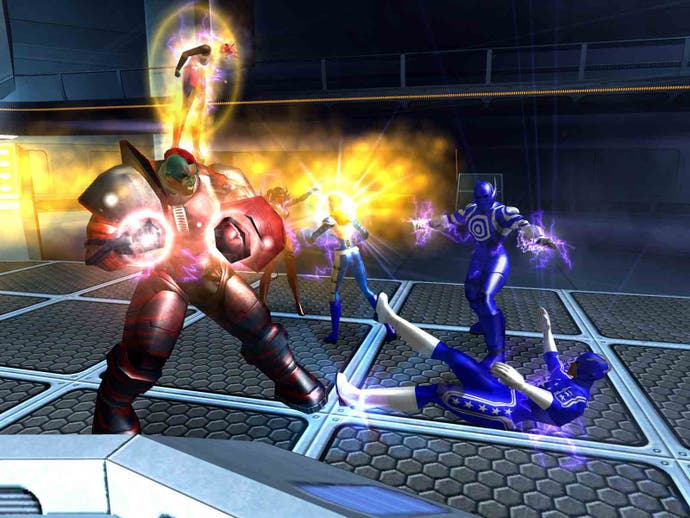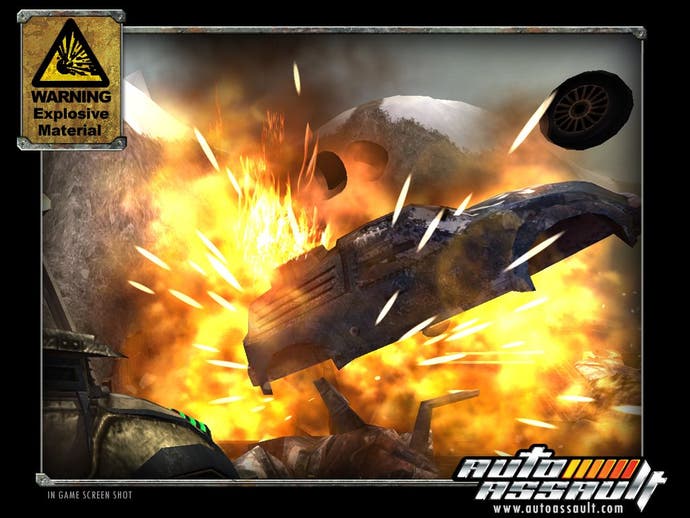NCsoft on the divergence of RPGs
NCsoft's Stephen Reid considers the growth of MMOs in relation to their single-player equivalents, and how the genre's shaping up overall.
As the line between massively-multiplayer online games and their single-player equivalents becomes increasingly blurred, and developers like BioWare who've traditionally focused on turn-based affairs strike out in other areas, NCsoft's Stephen Reid considers the genre's progress in a number of areas.

World of Warcraft has shown that building on an existing and established license can benefit the launch of a new product, even if it is a different kind of game from the original. The Warcraft brand, without a doubt, helped the game reach a new audience for MMOGs.
It's also proven that there is great potential in the European MMO market and that the audience is growing with the growth of broadband. Finally, it seems to have proven that there is an audience ready for MMOs that allow for casual, as well as more intensive, play styles.
MMORPGs are definitely enjoying a renaissance with many publishers taking notice of the prolonged success of titles such as Lineage II. However, single-player RPGs will continue to have an audience as not all gamers play to be sociable, there are still lots of players that like to play solo; although most MMOs do cater to that sector.
In future, it's likely that the in-depth, story-led experience of traditional RPGs will increasingly become part of the multiplayer experience. This is something that ArenaNet has strived to push forward in Guild Wars, which contains a strong storyline as well as excellent PvP elements. So perhaps the single-player RPG developers will just team up with the MMO developers.
Developers and publishers follow the market; the demand seems to be for real-time action in today's market. That said, there are still plenty of excellent turn-based games on the market, and if players flock to those games, then the publishers and developers will definitely react to bring turn-based games back into the spotlight.
Good game design and innovation will always shine through - whether it's turn-based gaming or real-time, if it's a good game, it'll work regardless.

As soon as a developer chooses to make that game! Obviously more power in whatever platform is being used will help someone to make a game as ambitious as this, but in the end, it's down to the developers and publishers to make that bold choice - and then invest the enormous amount of time, effort and resources it would require to make that happen.
There seem to be a few trends that are emerging. One is diversity of genres; we'll see plenty more genres in RPGs, not just the traditional fantasy with occasional sci-fi. Hopefully more developers will begin to take more risks, and not just follow the fantasy crowd.
Real-time communications will probably be a must in any game; voice communications will be built in as standard into Auto Assault and Tabula Rasa, so there's no reason why future games won't include this option.
Video communication might also become part of the equation, allowing you to map your own face onto your character (for example) or allow you to talk directly to another person on video when in-game.
Finally, it's fair to expect a massively-multiplayer game to be launching on a home console system by 2007... Whether it'll be a success or not, is down to a lot of different factors.
Not many! That's why more genres need to be explored, or, at the very least, different takes on the same genre. No one wants to play another fantasy game - unless it's genuinely got something different about it. People want a different game experience from each game they play.
There are bound to be 'market leaders' in particular genres, but a single game can still come into a mature market and become the leader in a short time - it happened with World of Warcraft, it could happen again.
Stephen Reid is content and community manager for NCsoft Europe.

